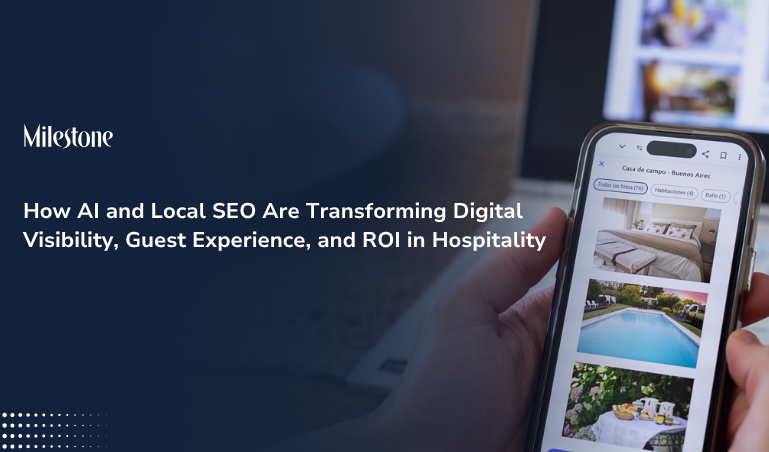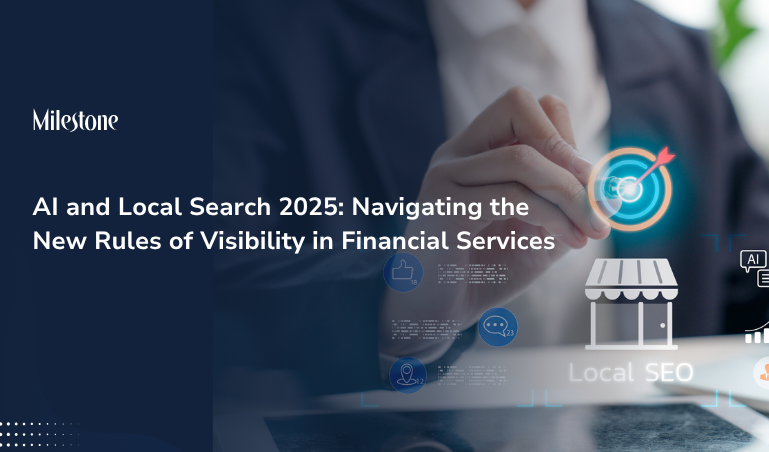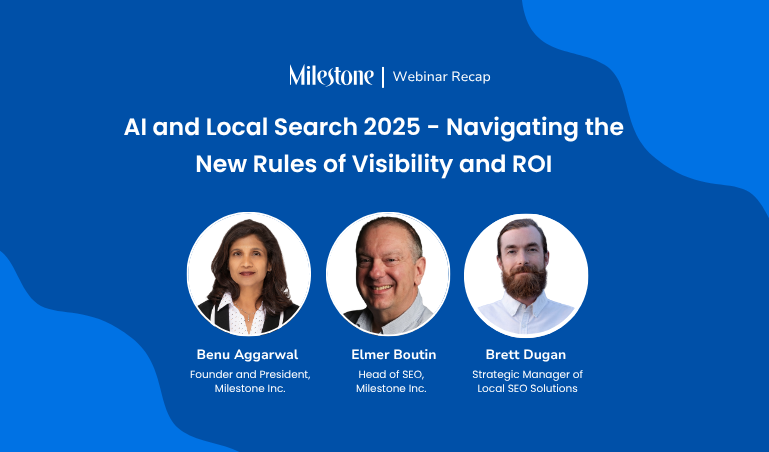In today’s hypercompetitive hospitality landscape, digital visibility is no longer a luxury, it’s a lifeline. As travelers increasingly rely on AI-powered tools and hyperpersonalized search experiences, hoteliers must rethink how they attract, engage, and convert guests. The convergence of AI and Local SEO is redefining the rules of visibility and reshaping the guest journey from discovery to booking.
From Keywords to Conversations, The New Search Reality
Search has evolved from keyword matching to intent understanding. With AI engines like ChatGPT and Gemini influencing how travelers discover hotels, the traditional SEO playbook is no longer enough. These platforms prioritize content that is helpful, structured, and context-rich, delivered in real time.
AI-powered search experiences are built around understanding and addressing customer intent and enabling deep personalization. Unlike traditional searches, users benefit from extended context windows, meaning AI can understand more of the traveler’s goals and preferences within a single experience, resulting in more tailored results throughout the travel journey.
For hoteliers, this means optimizing not just for Google, but for a growing ecosystem of AI-native search tools. Visibility now depends on the alignment of accurate business profile data, structured content, local relevance, personalized guest experiences, and real-time updates that both AI systems and human travelers can understand and act on.
Local 3.0, Think Global, Act Local, Scale with AI
The hospitality industry has entered the era of Local 3.0. This next phase emphasizes:
- Discovery: Make sure your property shows up where travelers search, through accurate listings, optimized location pages, and a strong technical SEO foundation supporting visibility across search engines, maps, and AI platforms
- Relevance: Align your content with the specific needs, questions, and context of your local audience using intent-focused keywords, community-centric messaging, and location-specific content
- Authority: Build credibility through consistent business information, authentic guest feedback, positive sentiment, and demonstrated local expertise, all of which AI systems use to recommend trustworthy hotels
- Personalized Experience: Deliver dynamic content and offers based on guest location, preferences, and behavior to increase relevance and booking conversion
- AI Readiness: Structure and format your website so AI systems can easily interpret your services, amenities, FAQs, and policies, improving visibility across AI-powered results
Real-World Use Case, Structured Data and Local Content Drive AI Discovery
A luxury hotel in Las Vegas implemented structured data using schema types such as Hotel, Offer, FAQPage, and LocalBusiness, while also creating geo-specific content to target high-intent searches like:
- “Best hotels near The Sphere with rooftop pools”
- “Spa hotels on the Strip with late checkout”
- “Romantic hotels in Las Vegas with balcony views”
They combined local-focused messaging with structured markup and real-time indexing to ensure updates to offers and amenities were reflected instantly in AI search responses. Their strategy blended human-centered storytelling with machine-readable precision, making it easier for AI platforms and assistants to recommend their hotel to travelers searching nearby.
AI Agents, The Always-On Concierge and Next-Gen OTA
AI agents are becoming digital intermediaries, researching, comparing, and recommending lodging choices for travelers. In many ways, they are evolving into the next generation of OTAs, only smarter, faster, and more personalized.
These agents reshape the travel funnel by:
- Researching hotel options based on proximity, amenities, and reviews
- Comparing availability and features across booking platforms
- Recommending personalized options based on guest preferences and past conversations
Unlike traditional OTAs, AI agents prioritize structured, accurate, and intent-aligned content over static listings or paid placements. That means a hotel’s discoverability increasingly depends on how well its content and data can be understood and used by intelligent systems, not just how much is spent on advertising.
What This Means for Local SEO
➤ Optimize for AI and human discoverability by building websites and listings with consistent formatting, localized content that addresses guest intent, and structured data that helps AI understand your property.
➤ Support the knowledge graph by using schema to describe services, amenities, policies, and FAQs in a way that search engines and AI platforms can easily access.
➤ Strengthen local authority through consistent NAP information, positive reviews, strong reputation signals, and engagement across your local ecosystem.
➤ Deliver personalized experiences by using CDPs and CRMs to tailor offers and content based on traveler location and preferences, ideally through a dynamic CMS that can push updates quickly and at scale.
How Hoteliers Can Put This Into Practice
- Ensure accurate and consistent local presence across platforms like Google, Apple Maps, and OTAs so that travelers can easily find, trust, and choose your hotel
- Create content that connects locally by developing location-specific pages that address traveler needs, nearby attractions, and popular searches
- Keep information fresh and up-to-date using real-time tools to update promotions, amenities, policies, and availability whenever anything changes
- Personalize guest experiences by delivering content and offers based on data insights, using a dynamic CMS to manage updates efficiently
- Leverage AI for better guest support by deploying chatbots and voice assistants that can answer questions, assist with booking, and provide personalized recommendations
- Make content easy for AI to understand by structuring property information with schema markup for services, rooms, pricing, amenities, and policies
- Measure what drives business results by tracking engagement, conversion, and guest value across all digital channels and using that data to optimize your strategy
Final Thought, Future-Proofing Starts Now
The hospitality industry is undergoing a transformation. By embracing AI and Local SEO, hotels can better meet evolving guest expectations and stand out in an increasingly complex digital landscape. The key is delivering connected, personalized experiences that resonate with both travelers and the AI systems guiding their decisions.
The future of hospitality is discoverable, conversational, and AI-powered experiences. As AI agents evolve into trusted digital concierges guiding travelers from search to stay, the brands that thrive will be those that optimize for both human expectations and AI understanding, delivering clarity, relevance, and measurable growth across every touchpoint.


